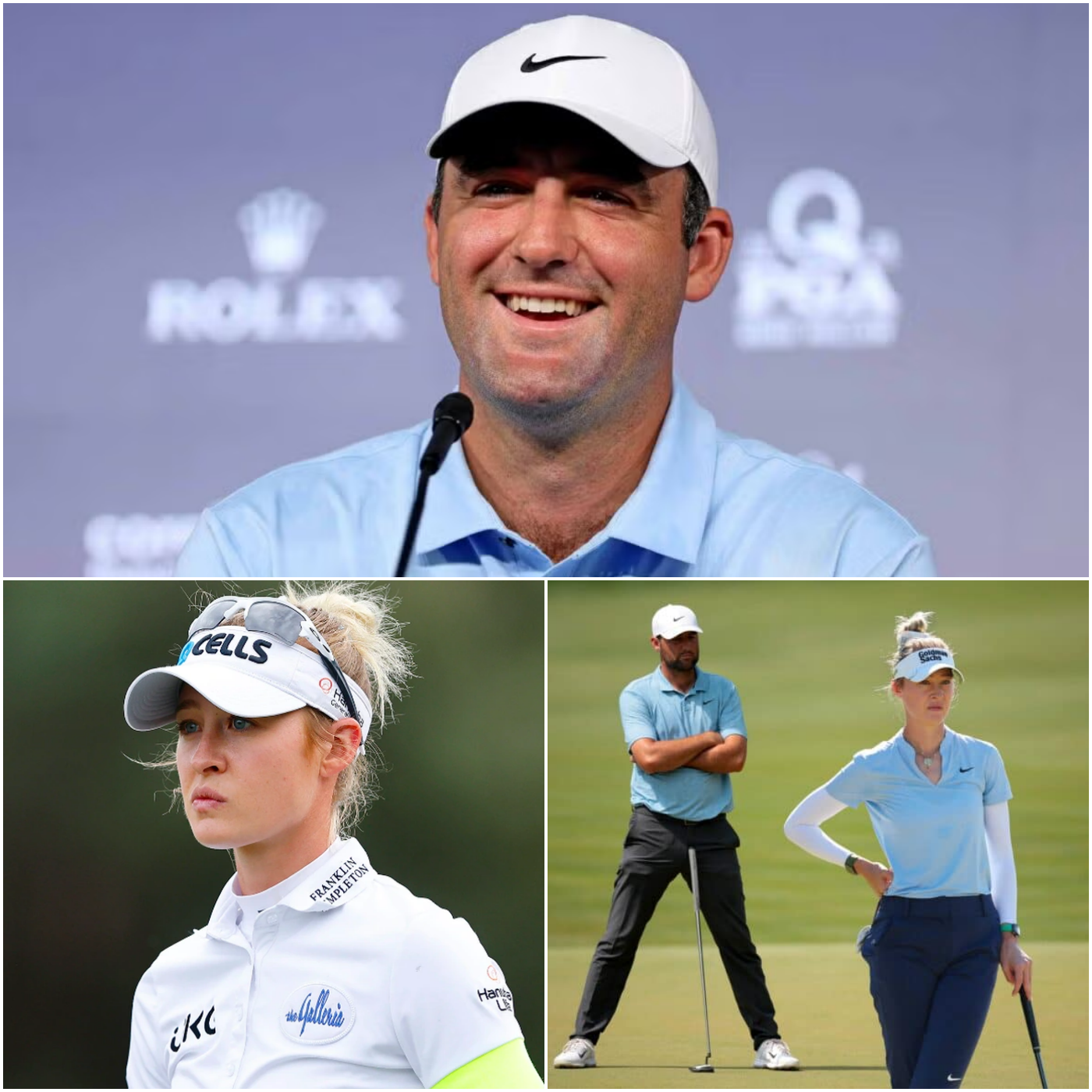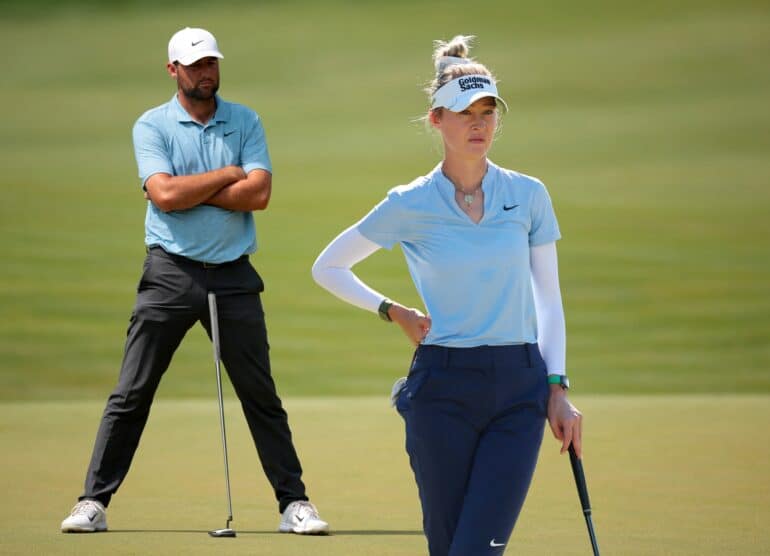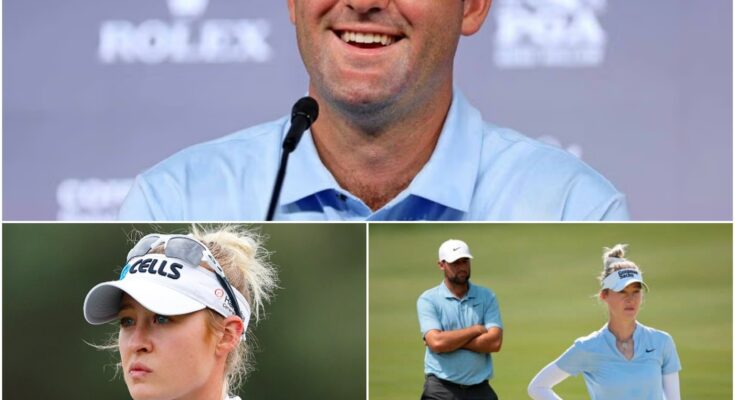Golf World Erupts Over Scheffler-Korda Feud After International Tournament Dispute

In a surprising and highly polarizing development, golf has found itself at the center of a major controversy following Scottie Scheffler’s unexpected refusal to participate in upcoming international tournaments. What began as a personal decision has now spiraled into a public conflict after women’s world number one, Nelly Korda, issued a sharp and public rebuke that has ignited tensions across the professional golfing community.
Sources close to the situation suggest that Scheffler’s decision was made after prolonged discussions with his team, citing personal priorities and dissatisfaction with current international scheduling logistics. While he has remained largely silent publicly, his choice not to represent the PGA in global competitions was perceived by many as a blow to the spirit of international sportsmanship — a sentiment Nelly Korda did not hesitate to echo.
Korda, fresh off a dominant season, expressed her frustration in an interview just days after the news broke. “When you are a leader in the sport, there’s a responsibility that comes with it,” she said pointedly. “Opting out sends the wrong message to fans and to the future of golf.”
Her comment was not only bold but unexpected, as cross-gender confrontations in golf’s public discourse are relatively rare. The statement triggered a wave of reactions from both players and analysts, many of whom now see the issue as symbolic of a deeper rift within the sport—between those seeking to elevate golf on a global stage, and those prioritizing selective competition and personal strategy.
Behind the scenes, tournament organizers and sponsors are reportedly concerned. Several international events, including marquee tournaments in Europe and Asia, had been banking on Scheffler’s appearance to draw viewers and revenue. “This is a big deal,” a European Tour official said anonymously. “It impacts broadcast deals, ticket sales, everything.”
/cdn.vox-cdn.com/uploads/chorus_image/image/73831124/2170658384.0.jpg)
Meanwhile, fans have taken to social media, dividing into opposing camps. Some argue that Scheffler has earned the right to choose where he plays, especially considering the grueling travel and mental toll of international events. Others agree with Korda, accusing Scheffler of abandoning the game’s growth in favor of personal comfort.
The Professional Golfers’ Association (PGA) has declined to comment directly, but insiders claim they are actively monitoring the situation. There’s speculation that they may consider policy changes or incentive adjustments in response, aiming to encourage top players to maintain a more global presence.
Adding fuel to the fire, Korda’s camp has confirmed she will not be backing down from her stance, with a spokesperson stating, “Nelly stands by her words and believes open dialogue is essential to the evolution of professional golf.”
This confrontation also arrives at a delicate time for the sport, as it seeks to attract younger audiences and expand into untapped markets. Unity among elite players—regardless of gender—has long been seen as a key strategy. Now, with this rift, the PGA must face the challenge of preserving that vision amid rising personal agendas and divergent priorities.

As for Scheffler, his next steps will be closely watched. Will he address the controversy head-on or let his silence speak? And will his absence from international tournaments be a one-off or signal a longer-term shift in his career focus?
Whatever the case, one thing is clear: the conflict between Scottie Scheffler and Nelly Korda has pushed a long-simmering debate to the forefront—how much do top players owe the game, and at what point does personal choice override collective responsibility?
Golf, a sport known for its quiet dignity, is now experiencing one of its loudest internal reckonings in years.

